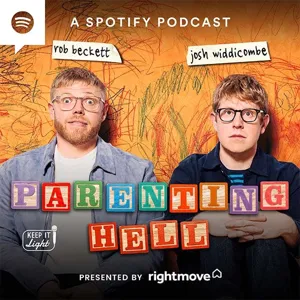Podcast Summary
The psychology of warnings and their consequences: Understanding why some warnings are heeded and others ignored is crucial for preventing disasters and improving overall safety and security. The Challenger disaster and melting Alaskan permafrost serve as reminders of the importance of addressing potential threats before they escalate.
Understanding the psychology behind warnings and why some are heeded while others are ignored is crucial. The Challenger disaster serves as a stark reminder of the consequences when warnings are ignored. The incident raised questions about accountability and the importance of addressing potential threats before they escalate. In the case of the Challenger explosion, NASA officials faced intense scrutiny, and the public demanded answers. Similarly, in other situations like natural disasters or terrorist attacks, the focus is often on identifying who knew what and when. However, it's not just about assigning blame; it's about learning from past mistakes and implementing measures to prevent similar incidents from happening again. The discussion also touched upon the Alaskan permafrost and the significance of its melting. This natural phenomenon is a warning sign of more significant issues beneath the surface. Ignoring such warnings can lead to costly and potentially dangerous consequences. In summary, the psychology of warnings is a complex issue with far-reaching implications. Understanding why some warnings are heeded and others are ignored and the importance of addressing potential threats can help prevent disasters and improve overall safety and security.
Permafrost Thawing: A Vicious Cycle of Climate Change: The permafrost, a vast frozen soil and organic matter, holds twice the carbon as the current atmospheric content. As temperatures rise, it thaws, releasing carbon, causing further warming and devastating consequences like melting glaciers, wildfires, and rising sea levels.
The permafrost, a vast area of frozen soil and organic matter, holds an estimated double amount of carbon compared to the current atmospheric content. This carbon is preserved in the extreme cold, but as global temperatures rise, the permafrost thaws, releasing this carbon into the atmosphere, contributing to climate change. This process, already underway, is causing devastating consequences such as melting glaciers, wildfires, and rising sea levels. The decaying organic matter in the permafrost not only smells unpleasant but also poses a terrifying threat to the entire planet. The vicious cycle of warming temperatures, thawing permafrost, and increased carbon emissions is leading to a catastrophic future.
Navigating Misinformation and Valuing Science: Effectively communicating scientific facts can be challenging, especially when dealing with misinformation. It's important to correct misunderstandings without offending, and to appreciate the value of scientific knowledge even when it's not fully understood.
Effective communication of scientific facts, especially when dealing with misinformation, can be challenging. Chris, a scientist, encounters misinformation during a school field trip and faces the dilemma of correcting it without offending or alienating the person spreading it. He also feels invisible and misunderstood, as many people don't fully understand or appreciate the value of his work. The ancient question of why humans ignore warnings of disaster is explored through the story of a doomed prophet in Greek mythology, offering potential insights into human behavior and the importance of understanding and valuing what we don't currently understand.
The Challenge of Effective Communication: A Lesson from Cassandra: The ability to see the future is useless if others don't believe or understand your messages. Clear and direct communication is essential for conveying important information effectively.
The ancient Greek myth of Cassandra, a prophet with the ability to see the future, serves as a reminder of the challenges of effectively communicating important messages, even when they involve dire warnings. Cassandra, the daughter of King Priam of Troy, was cursed with the ability to see the future but was not believed by others due to her opaque and symbolic prophecies. Her most famous prophecy involved the Trojan Horse, a seemingly innocent gift that led to the fall of Troy. Despite her powers, Cassandra's inability to effectively convey her messages highlights the importance of clear and direct communication, a lesson that remains relevant in today's world.
Cassandra's Challenges in Being Believed: Cassandra's cryptic language, lack of formal authority, being too far ahead of others, and asking too much caused her prophecies to be disregarded. Her knowledge of impending danger gave her an oddly positive reaction, while Agamemnon's refusal was due to his own blind spots.
Cassandra's inability to be believed by her fellow citizens was not only due to the curse that made her prophecies unheeded, but also because of her cryptic language, lack of formal authority, being too far ahead of others, and asking too much of them. Her oddly positive reaction to her impending slavery and death was due to her knowledge of Agamemnon's own impending death and the revenge she would receive. However, Agamemnon's refusal to take Cassandra seriously was due to his inability to see the danger in his own life, his wife's infidelity, and the fact that he was walking into a death trap. Cassandra's predictions required a drastic change in perspective for those she warned.
People often accept only information that confirms their beliefs: Ignoring warnings based on own beliefs can lead to costly mistakes, being open to diverse perspectives can prevent this.
People, like the character in the Athenian tragedy, often only accept information that confirms their beliefs about themselves. Andrew Natsios, a former Massachusetts Representative, is an example of this phenomenon. He saw himself as a strong and triumphant figure, and ignored warnings from others that might have challenged this belief. This mindset led him to overlook financial issues in a major transportation project, The Big Dig, which resulted in huge cost overruns. Cassandra, a figure from Greek mythology, also ignored warnings, leading to tragic consequences. Understanding how warnings are heard and acted upon can provide insights into real-life situations. In essence, being open to diverse perspectives and information can help avoid costly mistakes.
Using data and personal connections to make a persuasive case for action: Effective communication of compelling evidence and leveraging personal relationships can lead to significant change, even in the face of threats and challenges.
Effective communication and relationships can lead to significant change. Andrew Nazarian's experience at USAID serves as a prime example. Despite facing threats and challenges while investigating conflicts in Sudan, he was able to persuade the Bush administration to intervene through clear evidence and personal relationships. Nazarian's presentation of the potential escalation of violence, along with the use of satellite imagery and a study predicting the number of deaths if the US didn't intervene, provided compelling evidence. Additionally, his insider status, having campaigned for both George H.W. Bush and George W. Bush, gave him credibility and helped him gain the attention of the president. This case study highlights the importance of using data and personal connections to make a persuasive case for action.
Using personal and political connections to influence policy decisions: Leveraging insider knowledge and appealing to shared interests can help advocates gain attention and influence policy outcomes.
Having insider knowledge and understanding the needs and priorities of those in power can significantly influence the outcome of policy decisions. Andrew Natsios, a former USAID administrator, leveraged his political and personal connections to warn President Bush about the consequences of inaction in Darfur, where many Christians were being attacked. By appealing to Bush's political interests and religious affiliations, Natsios was able to gain the president's attention and ultimately save lives through humanitarian action. This contrasts with Cassandra, who, despite speaking the truth, was dismissed due to her lack of insider status and perceived otherness. Understanding the psychological bias towards empathy towards those who share commonalities and building on existing interests can be an effective strategy for advocacy and policy change.
Understanding the challenges of effective warnings: To ensure warnings are heeded, use clear language, provide evidence, and create a culture that values warnings. Be open to warnings and work together to prevent accidents.
Delivering effective warnings, as depicted in the story of Cassandra, can be a significant challenge. Cassandra, who could see the future, was often ignored despite her attempts to warn others of impending danger. Modern-day Cassandras, including policymakers, face similar challenges. People may not be receptive to warnings if they require a radical shift in strategy, go against deeply held beliefs, or are perceived as politically inconvenient. Additionally, people may not take warnings seriously unless they come from within their in-group or the danger is imminent. The human mind has facets that make it difficult to pay attention to warnings and act on them until it's almost too late. To ensure that warnings are heeded and accidents like the Challenger Space Shuttle disaster are prevented, it's crucial to understand these challenges and find ways to make warnings more effective. This could involve using clear and concise language, providing evidence to support the warning, and framing the warning in a way that resonates with the audience. It's also essential to create a culture that values and prioritizes warnings, and to provide resources and support for those who issue them. Ultimately, it's up to all of us to be more open to warnings and to work together to create a world where Cassandra's are not ignored.
Expert Insights on Complex Historical Contexts: Understanding complex historical contexts is essential for making sense of the world. Expert insights can help us navigate intricate histories and improve our knowledge.
Understanding complex historical contexts is crucial to making sense of the world around us. This week on Throughline from NPR, we were grateful for the expertise of Sophia Dawkins, who spent years studying the conflict in South Sudan and helped us navigate its intricate history. Her contributions may not have been the most headline-grabbing, but they were invaluable in getting the nuances right. We believe that sharing knowledge and recommendations can make a significant impact, so if you enjoy our podcast, please tell a friend. Hosts Randa Dafatar, Ramtine Arab-Louis, and I, Shankar Vedanta, invite you to join us every week as we explore forgotten stories from the moments that shaped our world. Throughline is available on Facebook, Twitter, and all major podcast platforms. Let's continue learning together.





